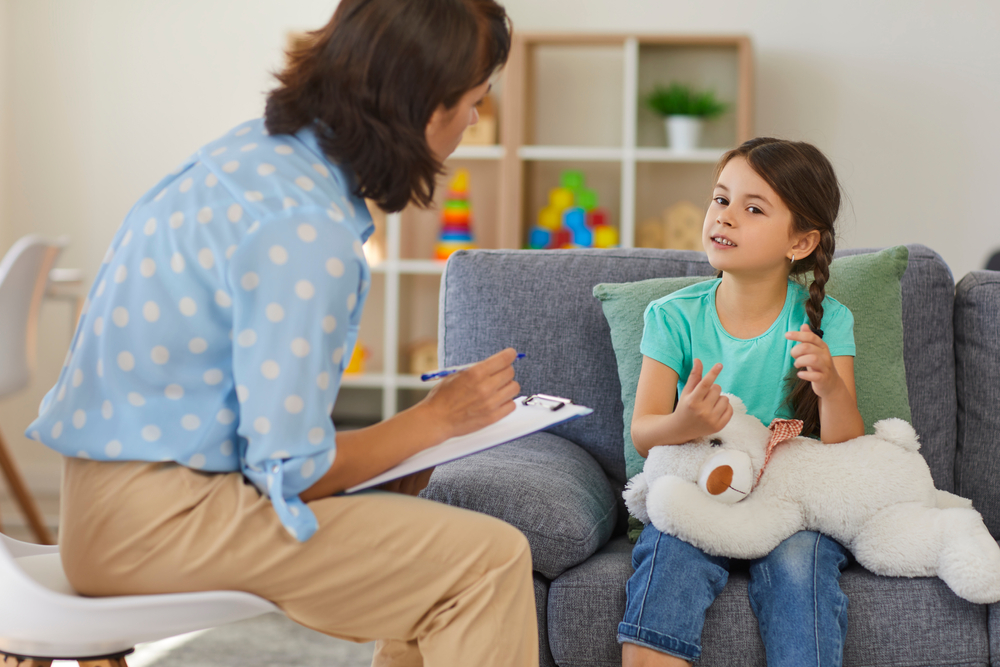As summer break comes to an end, we understand that going back to school can be an exciting yet challenging time for children. At PHC, we believe that addressing children’s mental health during this transition is crucial for their overall well-being.
In this blog post, we will explore the impact of the back-to-school transition on children’s mental health and offer practical tips for a smooth adjustment. Additionally, we’ll highlight how our child therapists can play a significant role in supporting your child’s emotional journey during this period.
The Back-to-School Transition and Its Impact on Mental Health
As the school bell rings and the classroom doors open, children experience a whirlwind of emotions. The transition from a relaxed summer schedule to a structured school routine can trigger various challenges for kids of all ages, especially children with anxiety disorders. Some children may feel anxious about meeting new teachers and classmates, while others might worry about academic expectations or fitting in socially.
At PHC, we recognize that these emotions are normal and valid. Our goal is to help parents and caregivers understand and support their children through these changes. By addressing the impact of this transition on children’s mental health, we aim to foster a positive and healthy school experience for every child.
Tips for a Smooth Back-to-School Transition
- Establish a Routine: One of the best ways to help children adjust to the back-to-school routine is by establishing a consistent daily schedule. This includes setting regular bedtimes, mealtimes, and study hours. Predictability and structure can provide a sense of security and stability for children.
- Open Communication: Encourage open conversations with your child about their feelings and concerns regarding the upcoming school year. Let them know that it’s okay to share their worries, and reassure them that you are there to support and listen to them.
- Visit the School: If possible, arrange a visit to the school before the first day. Familiarizing your child with the new environment can help alleviate anxiety and make them feel more comfortable on the first day of classes.
- Practice Relaxation Techniques: Teach your child simple relaxation exercises, such as deep breathing or visualization, to manage stress and anxiety. These techniques can be valuable tools for children to use whenever they feel overwhelmed.
- Encourage Social Interaction: Facilitate opportunities for your child to reconnect with old friends or make new ones before the school year begins. Social skills are essential for a smooth transition and can foster a positive attitude toward school.
- Set Realistic Expectations: Help your child set achievable goals for the upcoming school year. Encourage them to focus on personal growth and improvement, rather than solely on achieving perfect grades.
The Role of Child Therapists in Supporting Children’s Mental Health
At PHC, we understand that some children may need extra support during the back-to-school transition. Our team of dedicated and qualified child therapists is here to help. Child therapy provides a safe space for children to express their feelings, process their emotions, and develop coping strategies for challenges they may encounter.
Our child therapists are trained in various therapeutic approaches tailored to meet the unique needs of each child. From play therapy for younger children to cognitive-behavioral therapy for adolescents, our therapists utilize evidence-based techniques to support your child’s mental and emotional well-being.
Support Your Child
As the new school year begins, it’s essential to prioritize your child’s mental health. By being proactive and using the tips we’ve provided, you can help your child navigate the back-to-school transition with confidence and ease. Remember that our child therapists at PHC are always here to support your child’s emotional journey, ensuring a positive and enriching school experience.
Reach out to us today to learn more about our child therapy services and how we can help your child thrive.




